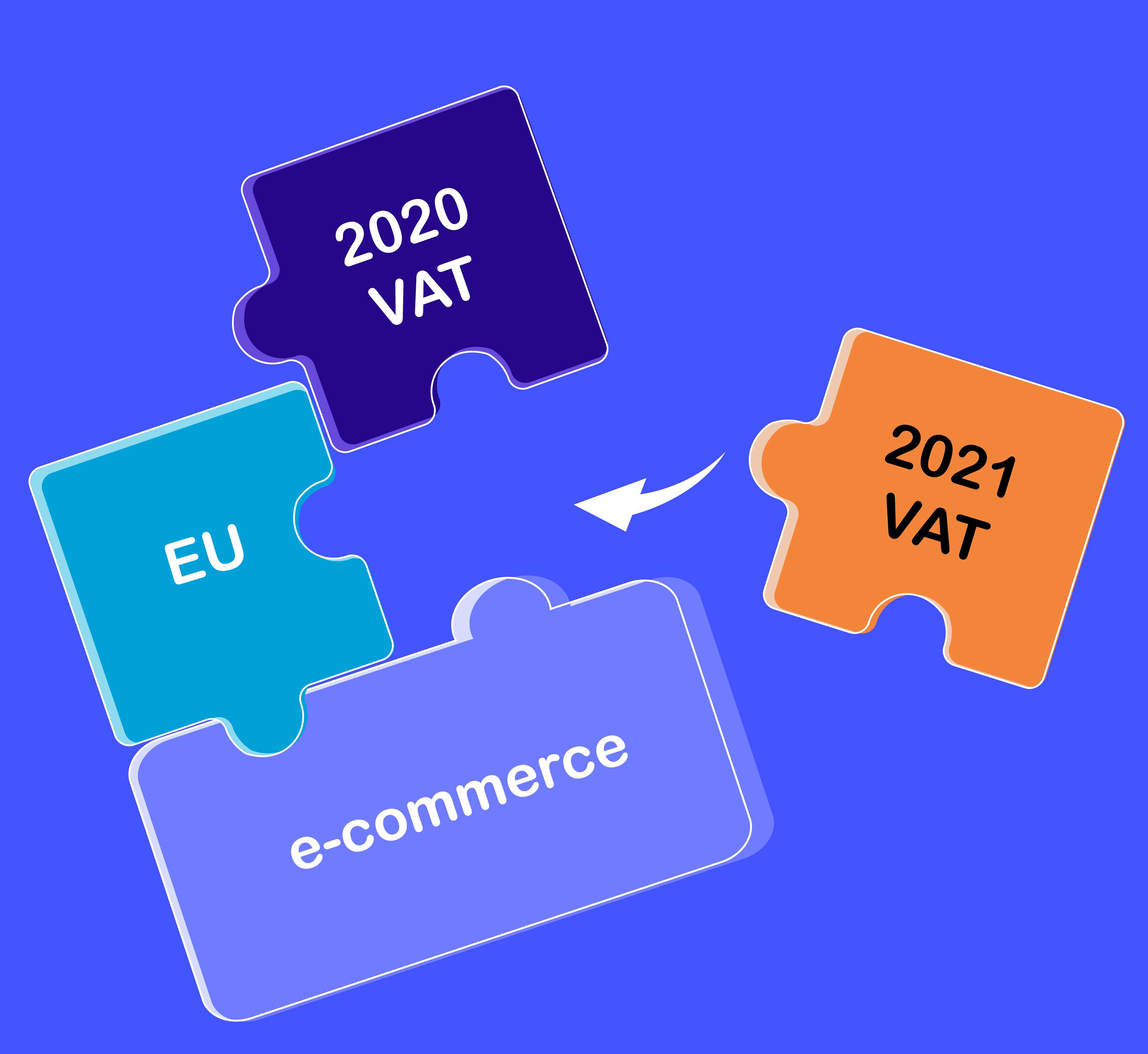No FOMO on our watch!
Oops, did you forget the EU VAT rules are changing soon? If you’re in the US and wondering how the EU VAT changes will affect you, take note!
The European Union is making major changes to EU VAT and custom laws that will come into effect on July 1st, 2021.
We know, not all online sellers are the same 😉. The products and services vary from business to business and so do the markets, but the new EU E-commerce VAT rules could simplify your VAT obligations. These changes could streamline the entire VAT process for online sellers. We’ll go through all of this and more below.
😿What exactly is going on?

🛳️ Who is in the boat?
Everyone in the E-commerce supply chain will be affected by the change from online sellers and marketplaces both inside and outside the EU, to postal operators and couriers, tax and customs administrations, right through to customers.
Distance EU sellers
DIstance sellers , selling their products within the EU, or from a 3rd country towards the EU via their website.
Online Marketplaces
Online marketplaces that facilitate purchases inside and outside of the EU such as Etsy, Amazon, Aliexpress, etc.
Postal Operators & Couriers
Postal operators and Couriers will have to check all products for customs clearances and, in many cases, they have to collect the Vat for each consignment.
EU Consumers
EU consumers will now have to pay VAT for all their online purchases outside the EU and sometimes directly to the delivery service.
🙏🏾 Change is always good

Say goodbye to the €22 VAT exemption
VAT will be charged on all commercial products imported into the EU regardless of value, from July 1st, 2021. For consignments with a value of €150 or below, can either be charged at the time of sale or by the customs declarant.
Import-One-Stop-Shop will simplify the process
Ecommerce consignments of €150 or below, the EU is introducing an optional Import-One-Stop-Shop (IOSS) to clear goods through customs. This will allow sellers or online marketplaces to charge VAT at the point os sale and remit it directly to the authorities.
The process becomes simpler and more transparent for the customers, and creates efficient customs processing. Pre-registration for IOSS started from 1 April 2021
All you need to know about the Import-One-Stop-Shop
Some online marketplaces become the VAT collector
What does this mean?
Marketplaces in scope of the new EU VAT rules can for instance, be online platforms that facilitate the sales transactions. They enable sellers to sell their goods directly to customers.
Certain marketplaces, rather than their sellers, will now be resposible for collecting, reporting and remitting the VAT due from the end-customer if they register for the IOSS. The scheme would apply for sellers for transactions below €150.
How would I be affected?
If a marketplace has opted for IOSS, businesses selling through it must use the marketplace's IOSS number and provide it to the party responsible for making the customs declaration (DHL, FedEx, etc.).
Businesses using several marketplaces to sell their goods should keep clear evidence of the sales carried out via each. They should also provide the corresponding IOSS number after each sale, the the customs declarant.
💡The light at the end of the tunnel

The new rules will:
• Ensure that VAT is paid where consumption of goods and services take place
• Create a uniform and transparent VAT system
• Re-establish fair competition between EU and foreign Ecommerce business
• Offer businesses a simple and uniform to declare and pay their VAT in the EU
🥳 We can help
At Bookairfreight, we take care of all the paperwork and customs. We are up to date with the latest VAT and customs regulations. Contact us to find out more.
Local Digital Marketing manager and content creator at Bookairfreight. I am someone who loves literature, but here to simplify interesting topics within the logistics industry that are easy to digest.


































































